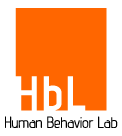The brain is ‘programmed’ for learning from people we like
Our brains are “programmed” to learn more from people we like — and less from those we dislike. This has been shown by researchers in cognitive neuroscience in a series of experiments.
Memory serves a vital function, enabling us to learn from new experiences and update existing knowledge. We learn both from individual experiences and from connecting them to draw new conclusions about the world. This way, we can make inferences about things that we don’t necessarily have direct experience of. This is called memory integration and makes learning quick and flexible.
Inês Bramão, associate professor of psychology at Lund University, provides an example of memory integration: Say you’re walking in a park. You see a man with a dog. A few hours later, you see the dog in the city with a woman. Your brain quickly makes the connection that the man and woman are a couple even though you have never seen them together.
“Making such inferences is adaptive and helpful. But of course, there’s a risk that our brain draws incorrect conclusions or remembers selectively,” says Inês Bramão.
Important who provides the information
To examine what affects our ability to learn and make inferences, Inês Bramão, along with colleagues Marius Boeltzig and Mikael Johansson, set up experiments where participants were tasked with remembering and connecting different objects. It could be a bowl, ball, spoon, scissors, or other everyday objects. It turned out that memory integration, i.e., the ability to remember and connect information across learning events, was influenced by who presented it. If it was a person the participant liked, connecting the information was easier compared to when the information came from someone the participant disliked. The participants provided individual definitions of ‘like’ and ‘dislike’ based on aspects such as political views, major, eating habits, favorite sports, hobbies, and music.
About fundamental mechanisms
There’s already vast research describing that people learn information differently depending on the source and how that characterizes polarization and knowledge resistance.
“What our research shows is how these significant phenomena can partly be traced back to fundamental principles that govern how our memory works,” says Mikael Johansson, professor of psychology at Lund University. “
We are more inclined to form new connections and update knowledge from information presented by groups we favor. Such preferred groups typically provide information that aligns with our pre-existing beliefs and ideas, potentially reinforcing polarized viewpoints.”
Innate way of handling information
Understanding the roots of polarization, resistance to new knowledge, and related phenomena from basic brain functions offers a deeper insight into these complex behaviors, the researchers argue. So, it’s not just about filter bubbles on social media but also about an innate way of assimilating information.
“Particularly striking is that we integrate information differently depending on who is saying something, even when the information is completely neutral. In real life, where information often triggers stronger reactions, these effects could be even more prominent,” says Mikael Johansson.
We specialize in High-performance Human Behavior training
Working on the humans that grow your business | High-performance Human Behavior training | I teach corporations & employees how to hack into humans using Behavior & Persuasion. I work with Pharma | Finances| Banking |Insurance| Sales| AI – Language & Behavior Economics
